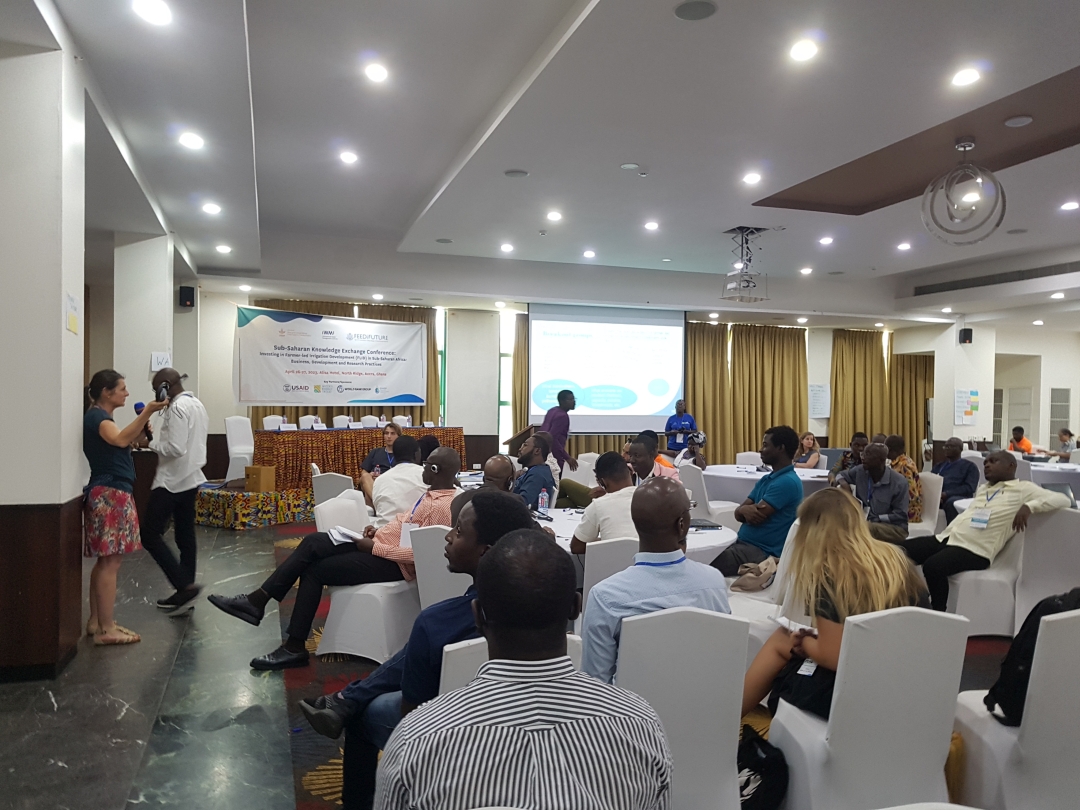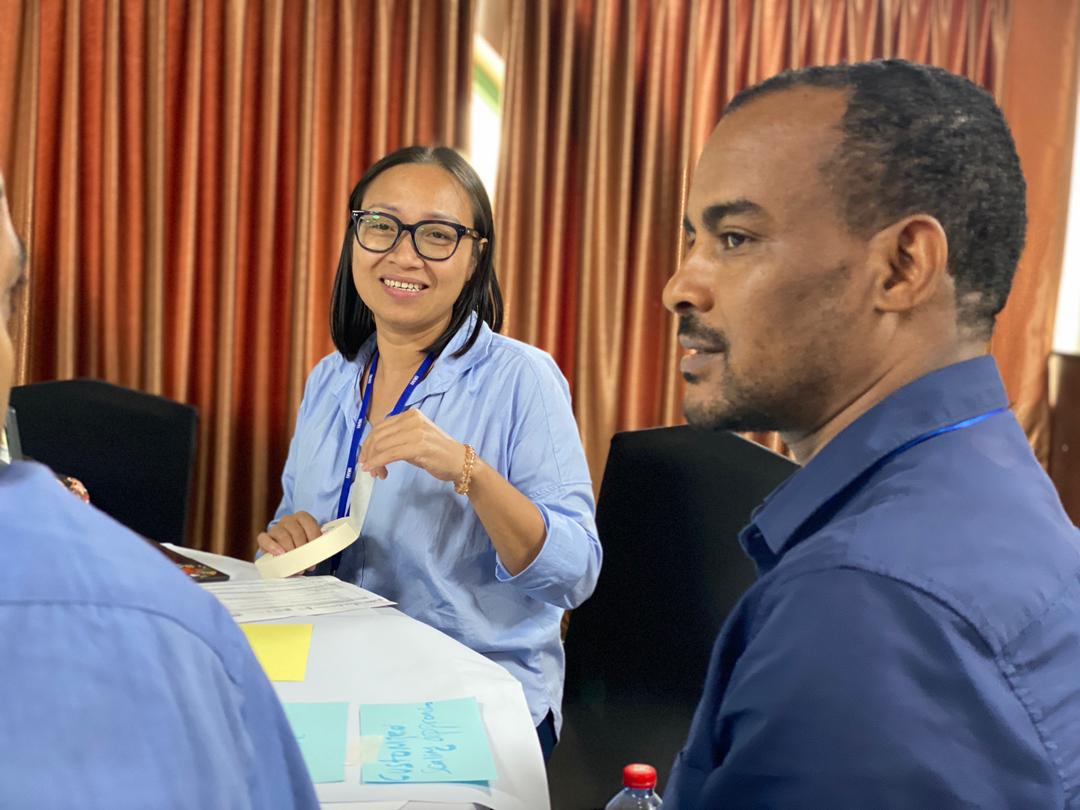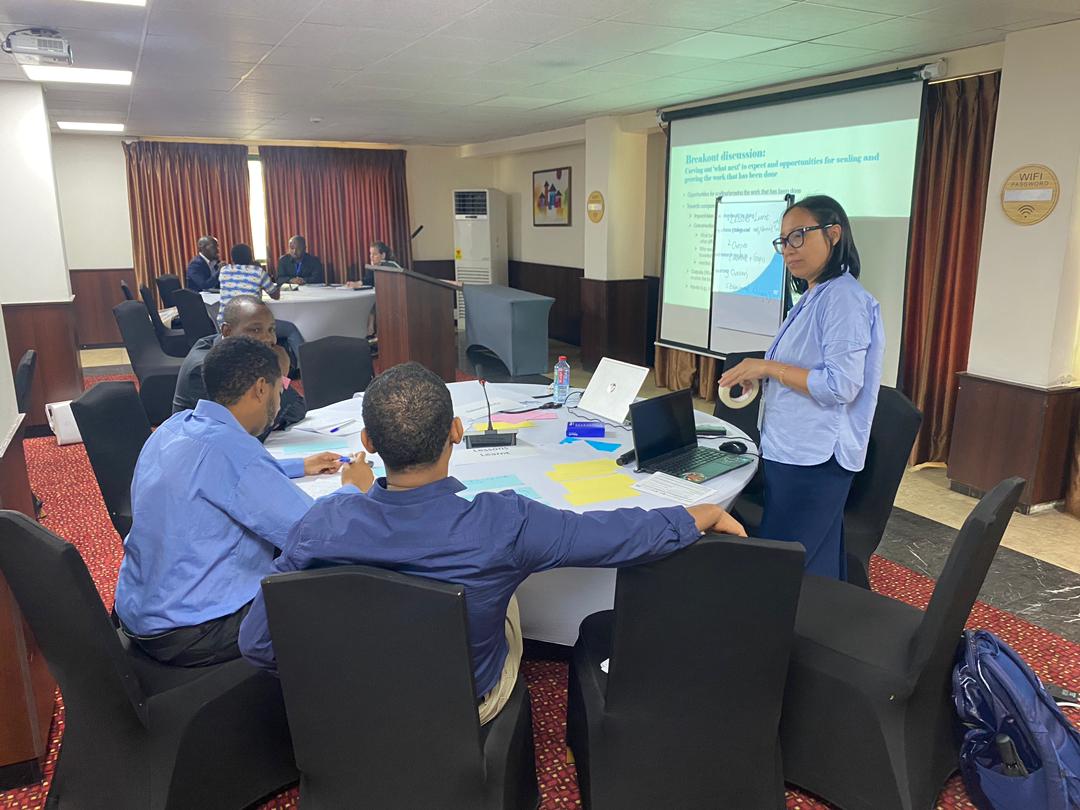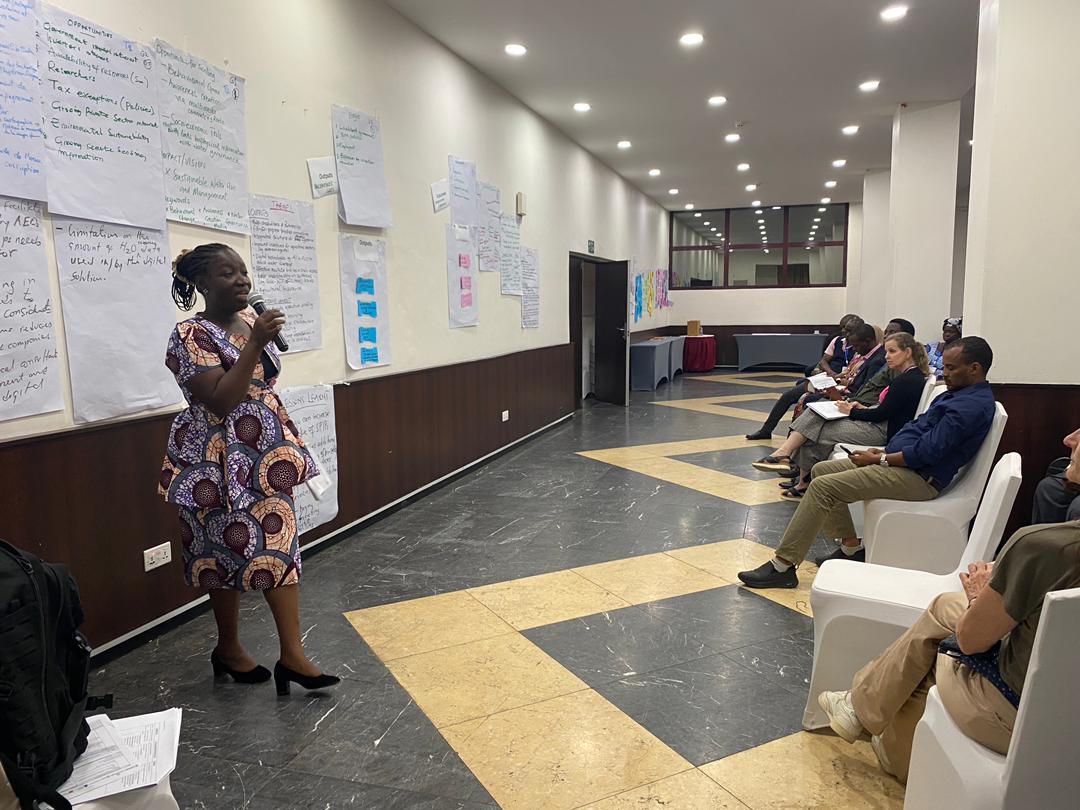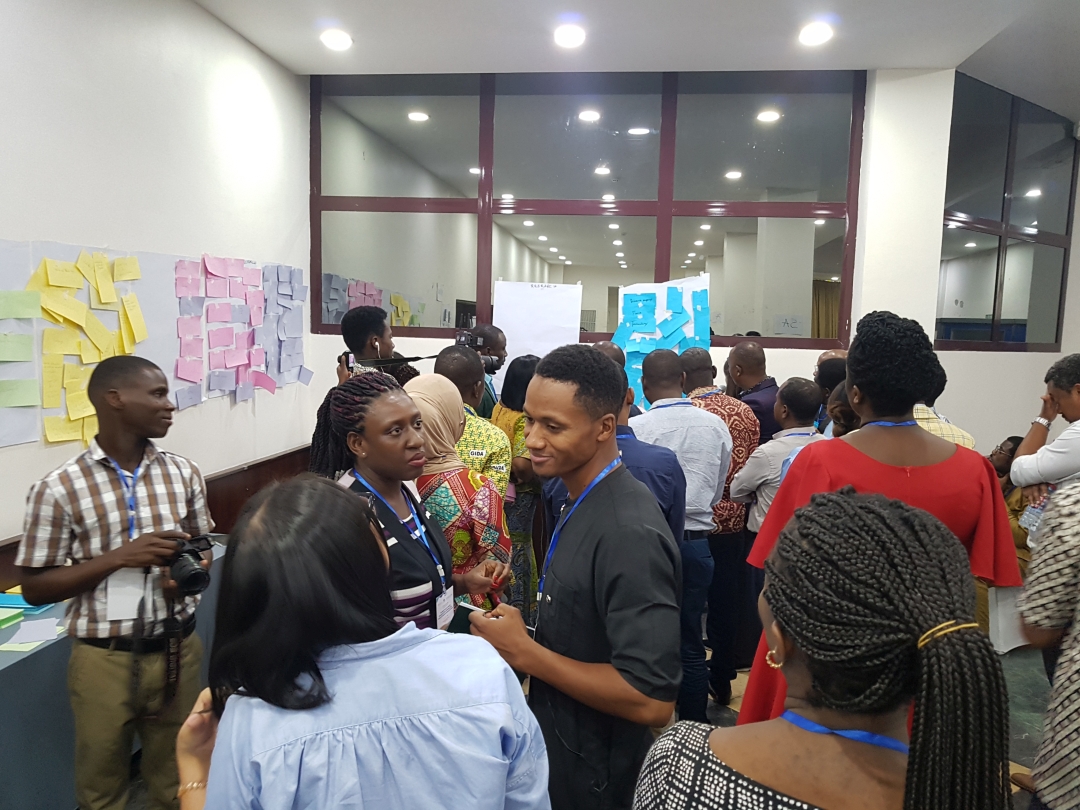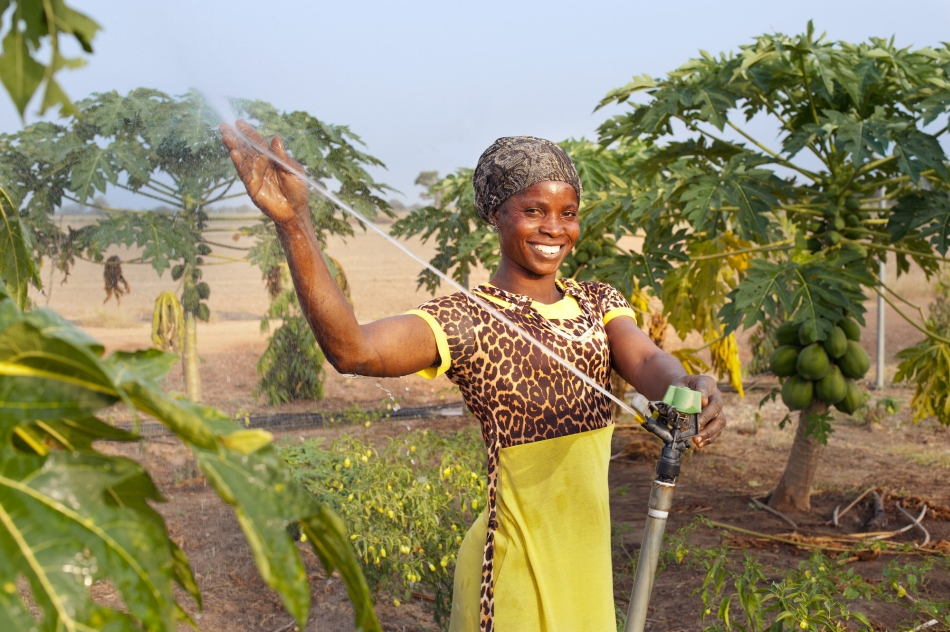
Affordable finance, digital tools and innovation bundles are among the enablers that can help meet Africa’s irrigation potential of 60 million hectares in the next five years.
By Thai Thi Minh, Senior Researcher – Innovation Scaling, IWMI and Cecily Layzell, IWMI-Ghana Consultant
“In the era of climate change, irrigation is the game-changer in agricultural transformation and food security,” said Hon. Alhaji Mohammed Tufeiru, Ghana’s Deputy Minister for Food and Agriculture. He made the remark during the opening of the knowledge exchange conference ‘Investing in farmer-led irrigation development in sub-Saharan Africa: Business, research and development practices’ in Accra, Ghana on April 26, 2023.
In small-scale, farmer-led irrigation development (FLID), farmers take the lead in establishing, improving or expanding irrigated agriculture. This can help transform food systems by enhancing climate resilience, increasing and diversifying agricultural production, reducing poverty, and supporting youth and women’s empowerment.
FLID has been part of farming systems for hundreds of years but has recently attracted increased attention from government institutions, donors and development organizations. Despite its huge potential, the pace at which FLID is expanding is slow. Barriers include inadequate policy and legal frameworks, underdeveloped irrigation technology and supply chains, a lack of affordable finance, and limited access to input and output markets.
The two-day conference brought together around 90 participants from the public and private sector, donors, researchers and farmers. Hosted by IWMI, the event was jointly sponsored by the USAID-funded Innovation Lab for Small-Scale Irrigation (ILSSI), the CGIAR Initiative on West and Central African Food Systems Transformation, the World Bank and Sun4Water, part of the GIZ initiative Water and Energy for Food (WE4F).
A program of plenary sessions provided an opportunity to share knowledge among the various stakeholders. Meanwhile, the parallel sessions served as learning and exchange deep dives on topics covering water and environmental sustainability, innovation, inclusion and financing.
Catalyzing FLID: what’s needed?
The conference culminated with a shared vision of the strategies and investments needed to take FLID to scale in the next five years. While challenges remain across the small-scale irrigation sector, participants spotlighted a range of promising solutions that have been or are being developed. In addition, the recognition of and enthusiasm for multi-actor partnership as an enabler of FLID was clear from the interactive discussions and networking during the breaks.
Several focus areas were identified.
- Financing: limited access to affordable finance is a major obstacle to farmers who want to invest in irrigation. Financing models such as pay-as-you-go and pay-as-you-use, matching grants and other co-funding arrangements can bring down upfront costs for farmers and de-risk the irrigation market for private sector equipment suppliers. However, the real danger of a high debt burden for farmers requires careful attention.
- Policy: An enabling policy environment is missing in many countries. Smart incentives, tax exemptions and smoother import procedures are some of the ways that governments can reduce technology costs and spur irrigation uptake.
- Innovation: innovative tools, technologies and approaches that address the barriers to FLID are gaining ground. In addition, an increasing number of actors are bundling complementary innovations for greater impact. Examples include solar-powered pumps bundled with pay-as-you-go financing, solar irrigation suitability mapping and agronomic training.
- Digitalization: existing irrigation-related digital tools include pump sizing, maintenance and payment apps. Further digitalization, such as real-time pricing information for input and output markets, could help irrigating farmers maximize their return on investment and encourage other farmers to adopt irrigation. The importance of data-driven planning and monitoring tools to improve water governance and prevent overexploitation of water resources was also widely discussed.
- Inclusion: women and youth are often overlooked or sidelined in irrigation planning, decision-making and marketing efforts. New strategies are needed to reach these groups, such as employing women sales agents and minimizing the risk of failure by improving access to other inputs like seeds. At the same time, existing approaches can sometimes be adjusted to be more inclusive. A promising example is the incorporation of gender-sensitive criteria in standard creditworthiness checks for women farmers looking to buy irrigation technologies.
- Capacity building: scaling FLID requires building capacity across the irrigation sector. Multi-stakeholder dialogues, private sector internships and the development of irrigation-related university curricula are starting to bridge knowledge and capacity gaps. However, more initiatives like this are needed.
Taking FLID forward
The shared vision will guide activities and investments in the next five years to help realize what IWMI’s West Africa Representative Olufunke Cofie described as FLID’s “big and transformational” potential in sub-Saharan Africa.
Her words were echoed by Lorenzo Carrera, Sector Leader, Sustainable Development at the World Bank, who praised the many “practical solutions for tangible impacts” that were presented and discussed.
Among these discussions, participants frequently referred to the inspiring case of the Uganda Micro-scale Irrigation Program. Allan Ollando, Senior Engineer at the Ministry of Agriculture, Animal Industry and Fisheries, presented the innovative approaches introduced to help individual smallholders overcome financial and knowledge constraints, develop irrigation and transition from mostly subsistence to more commercial agriculture. Financial constraints are tackled through a partial subsidy, which reduces the cost of the equipment for farmers, combined with facilitated access to credit. Meanwhile, awareness raising, the establishment of demonstration sites and organization of farmers field schools helps overcome knowledge constraints. Finally, a digital platform facilitates data collection and sharing with equipment suppliers, financial institutions and produce offtakers, and enables the government to track performance and plan sustainably.
Macben Makenzi, technical advisor for Sun4Water, added that overcoming regional crises requires building a community and jointly advancing cross-sectoral strategies to achieve resilient agri-food-water systems.
As participants head back to their countries, it is hoped that the shared vision will serve to embed FLID more firmly in agricultural policies and practices and make irrigation a reality for millions of African farmers.


